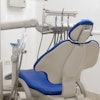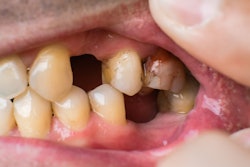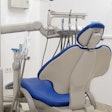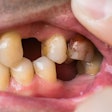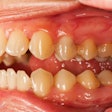Engaging in multiple dangerous behaviors coupled with a lack of positive social support may be a recipe for disaster when it comes to daily oral health issues, according to a study recently published in the Journal of Dentistry.
Efforts to improve social experiences and encourage healthier habits may help lessen the effect of oral health problems, the authors wrote.
“Negative social support and cluster of health-related behaviours were associated with oral impact on daily performance,” wrote the authors, led by Fatimah Alobaidi of the King’s College London Faculty of Dentistry. (J Dent, July 1, 2025, Vol. 161, 105947).
This study aimed to explore how social support, socioeconomic factors, and clusters of health behaviors relate to oral impacts on daily performance (OIDP) among a total of 2,049 adults ages 50 and older in England. Using data from the English Longitudinal Study of Ageing, researchers analyzed participants' self-reported challenges related to speaking, smiling, emotional well-being, and social interactions, they wrote.
Additionally, the study measured both positive and negative social support based on participants’ perceptions of their relationships with partners, family, and friends. Health behaviors included smoking, alcohol consumption, diet, and physical activity, which were categorized into risk levels. The OIDP tool was used to assess how oral health issues affected participants’ quality of life.
Individuals in the risky behavior cluster had 1.52 times higher odds (95% confidence interval [CI], 1.04 to 2.4) of experiencing some impact of oral health on daily life compared to those in the healthy cohort.
Similarly, those with high negative social support had 1.04 times higher odds (95% CI, 1.01 to 1.08) of reporting oral health impacts than those with lower negative support, they wrote.
A sensitivity analysis examined the relationships between socioeconomic factors, behavior clusters, and OIDP. The analysis found a significant link between socioeconomic factors and behavior clusters. However, no significant association was found between socioeconomic factors and OIDP, whether behavior clusters were included.
However, the study had limitations. While the survey included several health-related behaviors, it did not report key details on dental visits and oral hygiene habits, the authors added.
“Holistic care approaches and community-based initiatives should promote multiple healthy behaviours and foster positive social interactions, while future research should explore combined behavioural and social strategies to improve oral health and well-being in ageing population,” they concluded.

